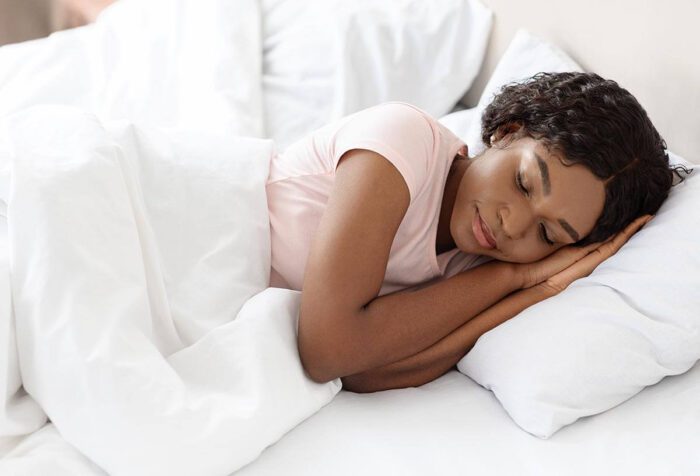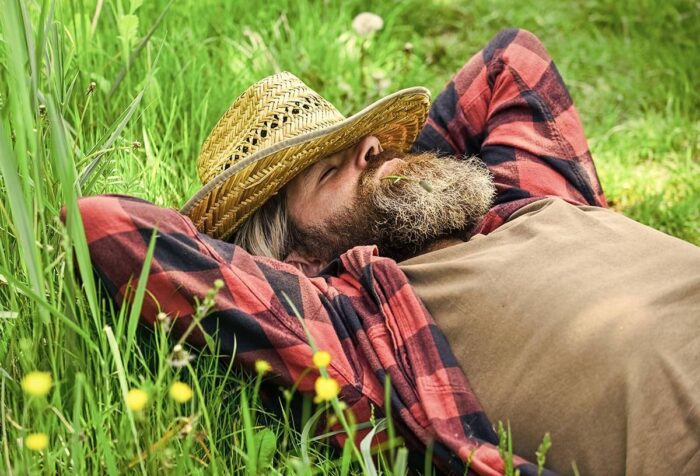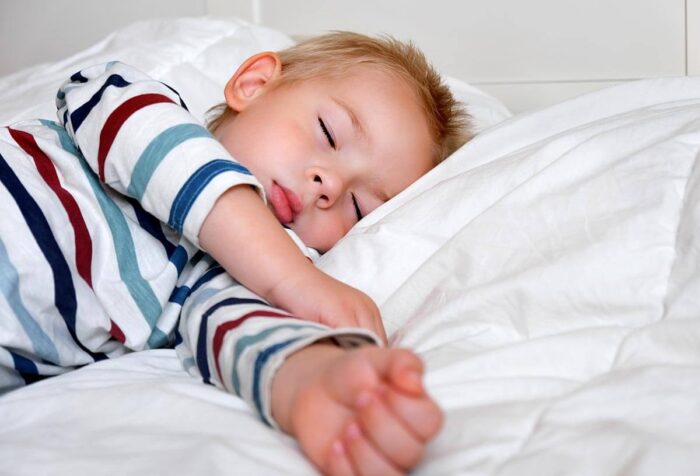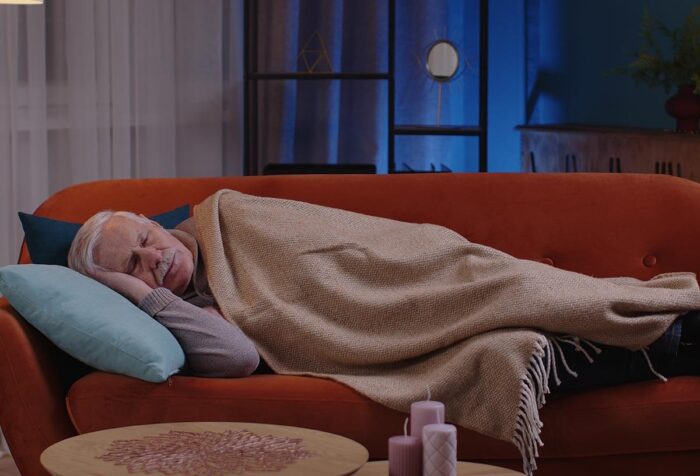Sleep is vital to the health of every living being — from the largest mammals to the smallest insects, and of course, humans. It’s a time of repair and restoration for the body and brain. Indeed, sleep is nature’s most beneficial cure.
When it comes to your physical and mental health, regular, good sleep is a necessity. It’s as important as eating well and getting regular exercise or movement every day. This is because your body and brain aren’t resting while you sleep. They’re hard at work keeping your tissues, organs, and body processes functioning well. Without consistent, good quality sleep, your body and brain can’t keep up with all the behind-the-scenes maintenance work they need to do to keep you well.


What is healthy sleep and how much do you need?
Healthy sleep has three components: 1) how much sleep you get; 2) sleep quality, i.e., uninterrupted and refreshing sleep; and 3) a consistent sleep schedule.
Everyone needs a different amount of sleep per night, depending on their stage of life, according to the Centers for Disease Control and Prevention (CDC). Here’s how it breaks down:
- Newborn (0–3 months): 14–17 hours
- Infant (4-12 months): 12–16 hours per 24 hours (including naps)
- Toddler (1-2 years): 11-14 hours per 24 hours (including naps)
- Preschool (3-5 years): 10-13 hours per 24 hours (including naps)
- School age (6-12 years): 9-12 hours per 24 hours
- Teen (13-18 years): 8-10 hours per 24 hours
- Adult (18-60 years): 7 or more hours per night
- Adult (61-64 years): 7-9 hours
- Adult (65 years and older): 7-8 hours
We aren’t getting enough sleep
According to the CDC, 35% of American adults don’t get the recommended minimum seven hours of sleep per night. And the most recent National Sleep Foundation poll shows that more than 87% of high school students in the United States get far less than the recommended amount.
This is a serious problem because insufficient sleep doesn’t only result in excessive coffee drinking or being short-tempered with loved ones (although those aren’t nice either). Research shows that lack of sleep can be dangerous, resulting in accidents, cause poor performance both at work and school, and increase the risk of serious illness and disease.




Sleep and health
Inadequate sleep can contribute to a wide range of serious illnesses and disease and increases your risk of dying from any one of them. Here’s more on some of the health problems you could be making worse with poor sleep habits:
Hypertension. Your blood pressure rises and falls throughout the day, but it can damage your heart and cause health problems if it stays high for a long time. Sleep gives your blood pressure a chance to rest. So, when you don’t sleep, your body is missing out on that important opportunity to let your blood pressure go down. Nearly half of adults in the United States (47%, or 116 million) have high blood pressure, or hypertension, one of the main risk factors for stroke and heart disease.
Weight gain and obesity. Lack of sleep can contribute to weight gain. And, consistent, inadequate sleep is a risk factor for obesity. This is partly because chemicals and hormones that affect your appetite are disrupted when you aren’t sleeping enough. So, your body may not be getting the right signals about when you’re hungry versus when you’re full. This may lead to you eating more than you need and choosing higher fat, higher calorie foods. And because you’re awake longer, it gives you more opportunity to eat.
Type 2 diabetes. Lack of sleep impairs your body’s ability to control blood sugar levels, a contributing factor to type 2 diabetes. Consistent lack of sleep may lead to insulin resistance, which can result in high blood sugar and produce diabetic-like conditions even in otherwise healthy people.
Immune health. When you’re asleep, your immune system releases proteins called cytokines which help you sleep. Your body needs these proteins to fight off infections, inflammation, and to help reduce stress. Inadequate sleep means you have fewer of these protective proteins as well as a decrease in infection-fighting antibodies.
Depression. People who experience depression very often have trouble sleeping. In fact, insomnia is estimated to occur in about 75% of adults with depression. To make matters worse, depressive symptoms such as intense sadness or hopelessness can arise in people who have chronic sleep problems. This negative cycle can be difficult to break without examining sleep issues.
Dementia. Research suggests that inadequate sleep during mid-life (approximately age 50) has been shown to increase the risk of dementia in later life. The reason may be that inadequate sleep doesn’t allow the brain enough time to flush away the protein associated with Alzheimer’s plaques. This and other toxic substances then accumulate in the brain, potentially contributing to dementia.
For more information on how sleep affects your health and tips for improving your sleep, visit our blog.
Get In Touch with a Sleep Expert
If you’re having trouble sleeping, it can be helpful to consult with a naturopath or herbalist. There are many potential reasons why you are having trouble falling or staying asleep. For example, the chemicals in your home can irritate the nervous system and affect your liver’s ability to function well. Or, you may have a hormonal imbalance that, if addressed, would improve your sleep.
Dr. Kristine Devillier has more than 20 years’ experience with natural medicine, addressing issues related to physical, mental, emotional, and spiritual health. She’s dedicated her entire professional life to helping others (and herself) find better health by examining all these aspects of their lives. Dr. Devillier creates holistic health plans that are specific to your needs and guides you on your journey to better overall health.
If you’re ready to learn more about the health benefits of sleep and how you can improve yours, give us a call on 337-332-2705 or reach us online. Nature’s Link Wellness Center is proud to provide holistic health and alternative medicine to Breaux Bridge, Lafayette, and the entire Acadiana community.


